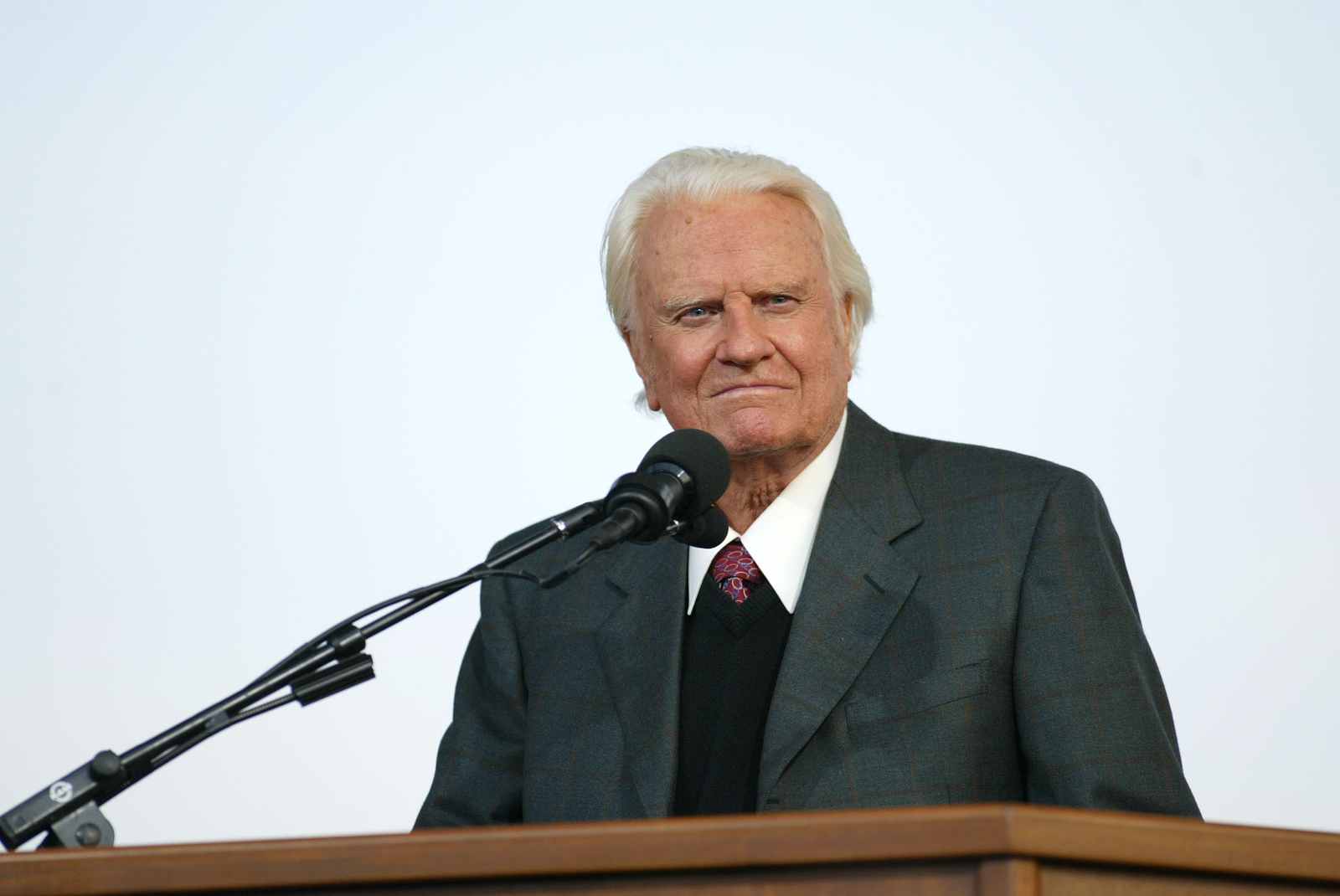
by Christi Roselle | Jun 7, 2018
Earlier this week, Kate Spade, a fashion icon, took her own life. She was 55, married for 24 years to the same man, had a 13-year-old daughter she adored, and she was a millionaire.
Additionally, according to reports, she suffered from depression. Her sister said that Mrs. Spade’s suicide was “not unexpected.” It has since been disclosed, Mrs. Spade had been seeking treatment for her depression for six years, had been unofficially separated from her husband for 10 months and may have recently begun self-treatment in the form of drinking.
But none of this was publicly known before her death because she did not want to harm her fashion brand with the stigma mental health issues bring.
Suicide is one of those dirty little secrets our society prefers not to discuss. The majority of us have known someone who has been touched by this desperate act, and yet we discuss it in the hushed whispers common to taboo subject gossip.
In the obituary and memorial of the deceased, the reason for death is tiptoed around but rarely discussed. In fact, you can usually be assured a death by suicide by the vague reactions of the family members in regards to public discussion of the loss of their loved one.
Mental health is so commonly believed to be a genetic defect, any evidence of such must be covered and hidden away.
According to a report from Psychology Today, suicide attempts by middle-aged women have increased by 49 percent, mostly due to opioid overdose. Many women in this demographic use opioids to manage their mental health problems, such as depression and anxiety, as opposed to seeking counseling or non-medical interventions. Sadly, drug and alcohol abuse only exacerbate suicidal tendencies.
As Christian women, we are not immune to this trend. In fact, since we often fear being judged as not being faithful enough to overcome our weaknesses, we fail to seek help from those who are best equipped to supply it – our fellow Christian sisters.
In women’s Bible study or fellowship meetings, rarely is our personal mental health discussed, even though it is one of the most prominent issues each of us face. We harbor a sterile environment, free from any “unpleasantness,” and as discussed, mental health has been deemed unpleasant public discussion.
We create ministries that concentrate on the physical aspects of this world, but rarely do we address the emotional ones. The best thing we as Christians have going for us is the knowledge of Christ’s love and His desire to bring peace, comfort and love to each of His children.
This is why it’s important to share Christ with others and spread His message of love, peace and comfort. As Paul wrote to the church of Corinth “Praise be to the God and Father of our Lord Jesus Christ, the Father of compassion, and the God of all comfort, who comforts us in all our troubles, so that we can comfort those in any trouble with the comfort we ourselves receive from God” (2 Cor. 1:3-4).

by Christi Roselle | Nov 30, 2017
“I am Woman, hear me roar in numbers too big to ignore…”
I loved that song as a little girl. I did feel strong. I did feel invincible. I did feel equal. I did feel like my gender could never hold me back from what I wanted to achieve. It was a battle cry in the battle of the sexes! Girls rule! Boys drool!
It gave me the courage to never be afraid to stand up for myself or to do what was right. I thought every girl and woman felt the same. Recent events have shown that not to be the case.
One can hardly open any social media venue and not be exposed to new accusations of sexual harassment against a celebrity, a politician, even a chef. The internet trend of #MeToo opened up a reservoir of emotions for millions of women, and millions of men are now flooded with the fear that they may be next in being accused.
Except, there is a segment of society who does not need to fear- those who have held themselves to a higher regard of interactions with the opposite sex. Or as some may call it “The Billy Graham Rule.”
In his autobiography, Billy Graham discussed his early career and what possible perils may fall upon evangelists. To avoid sexual impropriety or temptations, he decided to impose upon himself certain restrictions. These included avoiding traveling, dining or meeting alone with women other than his wife or family members.
There are many men and women in today’s society who follow these or similar personal rules of behavior, most often determined with their spouse and most notably Vice-President Mike Pence.
One would hope that a man who desires to hold himself accountable would be admired. Yet, this rule has undergone recent criticism, claiming it is actually discriminatory against women. It seems many see private conversations as the only way to create opportunity for job security and to avoid this situations is sexist.
Interestingly, Vice President Pence has no less than eight women in executive staff positions. I personally have worked with an elected official who holds a similar rule. His campaign manager has been a female, along with a predominantly female staff.
When this elected official reached out to me to participate in his campaign, he invited me to lunch. I had never met him and was uncomfortable eating with someone other than my husband. Before I could respond, he quickly noted his wife would be with us and encouraged my husband to attend. I suddenly felt at ease, and truly appreciated this arrangement. It also created an impression of this candidate of trust and respect.
When one holds themselves beyond reproach, it acts as a guardrail for any actions outside of the purveyance of the work at hand.
Many Christian couples have a hierarchy of relationships. At the top is God. Second is spouse. Third is children. Fourth is family and friends. And all else fits into the fifth level.
A marriage is a vow and contract. You promise to love and cherish the other person, forsaking all others, in sickness and in health. In the business world, a contract is signed by participating parties. In the marriage world, the contract is sealed with a kiss and consummation. Very physical acts, but with extreme purpose. These acts are meant to bind two entities into one before God. They are the reason He made both male and female. The reason one of His commandments, rules above all others, is to not commit adultery. Adultery is breaking a covenant made before God.
Another criticism of the “Billy Graham rule” is that women are seen as temptresses. That we all have an inherent evil due to our gender from which males must be protected and is disrespectful to women. This is a silly point. The rule can be used by both genders. Neither gender is more or less prone to lapses of propriety that may invite inappropriate interaction.
Both genders can experience harassment. I find it extremely sexist to think that males have more power than females. After all, females have all of the same protections in the workforce males do. No, the rule is there to place respect for all parties at the forefront. Disrespect is desiring more private and intimate settings in where it is easier to accomplish the types of deeds we are seeing in the headlines.
Which leads me back to the Helen Reddy classic “I am Woman.” Looking back at the lyrics as an adult woman, I can see that it had a different connotation than what I thought as a child.
It is about woman’s abuse. It is a desperation to change her circumstances. It is her desire to be seen as strong, to be seen as invincible. It is battle cry to turn the tide of power from the abuser to herself. It makes me sad that the woman in the song was treated so disrespectfully and had been so broken. It makes me sad that other women did not use it as I did, as a battle cry to truly feel strong and invincible.
If only that woman had been with a man who had held a higher regard for her. A man like Billy Graham.

by Christi Roselle | Oct 17, 2017
The woman had been kidnapped with her husband. Her child had been killed by her captors. She was repeatedly raped by her captors. She bore children while in captivity.
For years, she was trapped in a country in which women were not allowed to be educated or even receive medical treatment except under the supervision of a male guardian.
On Sunday, Oct. 15, a group of women dressed as handmaids from Margaret Atwood’s book “The Handmaid’s Tale” marched in protest of H.R. 36 AKA the “Pain Capable Unborn Child Protection Act.” Exactly what is “The Handmaid’s Tale” (THT) about to illicit such dramatic posturing publicly?
Set in futuristic Gilead, a theocracy created by Christian militants who overthrow the United States government via assassinations of the three governing branches and destruction of the Constitution, THT lays out a dystopian society in which fertile females are called “Handmaids” and placed into homes of Commanders and their infertile wives. Human procreation is under threat biologically due to radioactivity and pollution, so reproduction is an absolute imperative for the continued existence of our species.
Even though the book portrays their necessity of existence as precious, the handmaids are treated as slaves. Their clothing, speech and movement are controlled by a spy network known as “Eyes” who are willing to punish and/or put to death any handmaiden who does not obey.
Women are also seen as second class citizens, restricted from reading or even counting money. Their currency they must use to do the household shopping is given in wooden “coins” that depict the product desired to prevent the necessity of thought brought by complex transactions.
THT attempts to use Scripture to support its premises, however completely out of context. In fact, the concept of the handmaid is derived from Gen. 30:1-3, the story of Rachel and how her jealousy of her sister’s ability to give their husband, Jacob, sons. Rachel has her maidservant, Bilhah, lay with Jacob in Rachel’s stead to bear him a child for Rachel’s sake.
Conception in Gilead is to occur via The Ceremony, which opens with scriptural reading in front of the members of the household. Then the Commander, his wife and the handmaid are to engage in a sterile act of procreation, but really it is a rape of the handmaid.
Women do not need the right to kill their child, who is wholly dependent upon them, to be empowered. Women are the biologically and biblically chosen to be the keepers of the most innocent, a blessing I personally cherish.
How the book applies to H.R. 36 is extremely vague and unclear. The book doesn’t mention much about abortion. Conception is difficult and rare in the world of THT. The world Atwood creates in THT would make abortion a taboo by all humans, including the handmaids.
No, H.R. 36 is not proof of a potential patriarchy or theocracy in America. The bill does not use Scripture. It in no way removes a woman’s autonomy over her body.
Women do not need the right to kill their child, who is wholly dependent upon them, to be empowered. Women are the biologically and biblically chosen to be the keepers of the most innocent, a blessing I personally cherish.
Margaret Atwood is gifted with her use of words, but not so much with her understanding of philosophy or Christianity. Neither does she recognize that there are places in this world that more closely resemble Gilead than America.
Joshua Boyle and Caitlan Coleman were able to return to Canada this week. Caitlan is the woman whose story seems to be straight out of a fictional book. Their Gilead was real.

by Christi Roselle | Aug 21, 2017
The noise of this world is sometimes so loud, it is often hard to hear the voice of God.
Searching for a topic to submit, I found myself struggling. I had begun with prayer, but admittedly between kids, work and the news, I was distracted in that prayer. I hadn’t even opened my Bible yet. One could say, I had not prayed in earnest.
A million topics came to mind. All controversial. All noise of this world. Then I escaped to a place of solitude outside, prayed in earnest for God to help me find my words, and opened my Bible.
I am one who believes God guides us when we randomly open the Bible if we are willing to listen. I first opened to Lamentations 1:7: “In the days of her affliction and wandering Jerusalem remembers all the treasures that were hers in days of old. When her people fell into the enemy hands, there was no one to help her. Her enemies looked at her and laughed at her destruction.”
Well. Given the topics I was trying to avoid, I bookmarked this verse and proceeded to let my
Bible flop open to another verse. Hopefully one less controversial.
Proverbs 3:21 “My son, preserve sound judgement and discernment, do not let them out of your sight.”
My eyes glanced upward on the page.
Proverbs 3:13 “Blessed is the man who finds wisdom, the man who gains understanding.”
These verses were leading me somewhere, but all that kept coming to mind was the noise of this world I wanted to avoid today. I quickly wrote the words at the top of this blog. As I wrote, a locust began to loudly buzz. He went through his whole chorus, and I shook my head, annoyed, finding it ironic I was trying to escape the noise, and here it is chattering at me. I stared at the words I wrote:
The noise of this world is sometimes so loud, it is often hard to hear the voice of God.
Boom! There goes the locust again, as I read “the voice of God”.
It wasn’t hard to hear. In fact, it was so loud it hurt my ears. And it stopped when I recognized the voice of God was coming to me in a locust, an often vile creature who He typically sends in a plague.
Um. What exactly does that mean, God? Are you about to imbue upon me some righteous wisdom I may share with the world via a locust? Are you there? I’m listening now.
Silence.
No locust. No clarity. Alas, I am not one of His prophets after all. I will have no grand words to bestow upon you from Him, only my interpretation from my relationship with Him and what I know His clarity for me has been in the past.
When we earnestly call on Him for help, He answers. Loudly. We just need to be willing to recognize His voice when He speaks.
Even if it is through a locust.

by Christi Roselle | Feb 22, 2017
Last week, a judgment in the case Ingersoll v. Arlene’s Flowers was made that essentially declared an individual or business must be compelled to participate in an event against his or her will in the name of fairness. The state of Washington had created a law that established same-sex marriage as a legal union, and sexual orientation as a protected class, which forces any business to participate, upon request, in this marriage under threat of prosecution.
A business owner, who had a nine-year established relationship with her client, declined to participate in his same-sex marriage. She offered to provide premade flower arrangements; she offered to sell loose flowers for him to arrange on his own, she even offered to help find an alternate florist who could meet his needs. She simply did not want to participate in his event herself.
Rather than respecting her wishes of her personal right of free speech and religion, her client chose to prosecute her for her stances, bringing the full force of the law upon her which means the ruination of her business, her personal finances and her life.
When the United States was founded, there was one protected class: the individual. Previously, the different forms of governing had included protected classes either by birth into social order or financial ability. One had no ability to steer the course of his life by his choices or make his own opportunity without the threat of government punishment.
The Age of Enlightenment brought forth the recognition that individual sovereignty and religious tolerance were morally superior means for man to conduct his life than by monarchal edicts. Man had an inalienable right to self-determination ordained by his Creator. This was the essence of true liberty. The sole way to accomplish this freedom was to see that government should not restrict man, man should restrict government.
When the founders wrote the First Amendment to the U.S. Constitution, the intention was not to control individuals in their practice of their religion. The intention was to curb government intervention in the free practice of individual expression.
In the Virginia Statute for Religious Freedom Thomas Jefferson wrote, “…it is time enough for the rightful purposes of civil government, for its officers to interfere when principles break out into overt acts against peace and good order.”
Jefferson goes on to include, “No man shall be compelled to frequent or support any religious worship….nor shall be enforced, restrained, molested or burthened in his body or goods, nor shall otherwise suffer on account of his religious opinion or belief, but that all men shall be free to profess and maintain their opinions in matters of Religion, and that the same shall in no wise diminish, enlarge, or affect their civil capacities”.
Later, after Jefferson became U.S. President, the Danbury Baptist Association penned their concerns of the establishment of a state religion. In his return letter, Jefferson responded, ”Believing with you that religion is a matter which lies solely between man and his God, that he owes account to none other for his faith or his worship, that the legislative powers of government reach actions only, and not opinions, I contemplate with sovereign reverence that act of the whole American people which declared that their legislature would ‘make no law respecting an establishment or religion, or prohibiting the free exercise thereof’ thus building a wall of separation between Church and State. Adhering to this expression of the supreme will of the nation in behalf of the rights of conscience, I shall see with sincere satisfaction the progress of those sentiments which tend to restore to man all his natural rights, convinced he has no natural right in opposition to his social duties.”
The natural right of the owner of Arlene’s Flowers has not been found to be in opposition to her social duties, as her business is not a social interaction but a financial one. Her decision to not participate in the wedding between two men, which for her is an activity that is against her religious belief, is not an overt act against peace and good order.
The plaintiff misused his status as a “protected class” as coercion for her to comply against her will. Sadly, the courts sided with him. This decision flies in the face of the very intent of the individual liberty our country was established upon.
Last reported, the defendant has decided to submit her appeal of the court’s decision to United
States Supreme Court. A previous case that was based upon similar circumstances was refused, and with every precedent case set in court, our ability to practice our religious beliefs in our daily lives grows increasingly restrained.
We must be active in publicly speaking out against these decisions that hinder our natural rights, before we lose them permanently.




